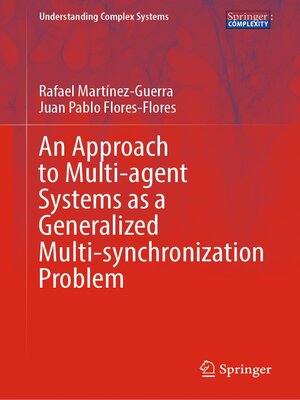An Approach to Multi-agent Systems as a Generalized Multi-synchronization Problem
ebook ∣ Understanding Complex Systems
By Rafael Martínez-Guerra

Sign up to save your library
With an OverDrive account, you can save your favorite libraries for at-a-glance information about availability. Find out more about OverDrive accounts.
Find this title in Libby, the library reading app by OverDrive.



Search for a digital library with this title
Title found at these libraries:
| Library Name | Distance |
|---|---|
| Loading... |
This book addresses the problem of multi-agent systems, considering that it can be interpreted as a generalized multi-synchronization problem. From manufacturing tasks, through encryption and communication algorithms, to high-precision experiments, the simultaneous cooperation between multiple systems or agents is essential to successfully carrying out different modern activities, both in academy and industry. For example, the coordination of multiple assembler robots in manufacturing lines. These agents need to synchronize.
The first two chapters of the book describe the synchronization of dynamical systems, paying special attention to the synchronization of non-identical systems. Following, the third chapter presents an interesting application of the synchronization phenomenon for state estimation. Subsequently, the authors fully address the multi-agent problem interpreted as multi-synchronization. The final chapters introduce the reader to a more complex problem, the synchronization of systems governed by partial differential equations, both of integer and fractional order.
The book aimed at graduates, postgraduate students and researchers closely related to the area of automatic control. Previous knowledge of linear algebra, classical and fractional calculus is requested, as well as some fundamental notions of graph theory.







